Now that April is almost here, we are definitely running full steam ahead into springtime.
That means planting gardens and putting out feeders for all our favorite wildlife visitors.
However, if you were hoping to tempt some hummingbirds into your garden this year, we have an important message: ditch the red nectar.
Hummingbirds are beautiful little creatures who can be found in all parts of the Americas — even Alaska gets them in the spring and summer.
Despite being hardy animals, these pocket-sized birds can be very vulnerable to human intervention.
We've already seen the harm that careless gardening can do to their nests. Now it's time for everyone to learn how to feed them properly too.
The popular myth is that hummingbirds prefer red nectar.
However, before you fill up your feeder, it's important to learn what that vibrant color could be doing to a hummingbird's delicate system.
Thanks to Happinest Wildlife Rehabilitation & Rescue in Tennessee, the message is slowly starting to spread: keep that red nectar far away from your garden visitors.
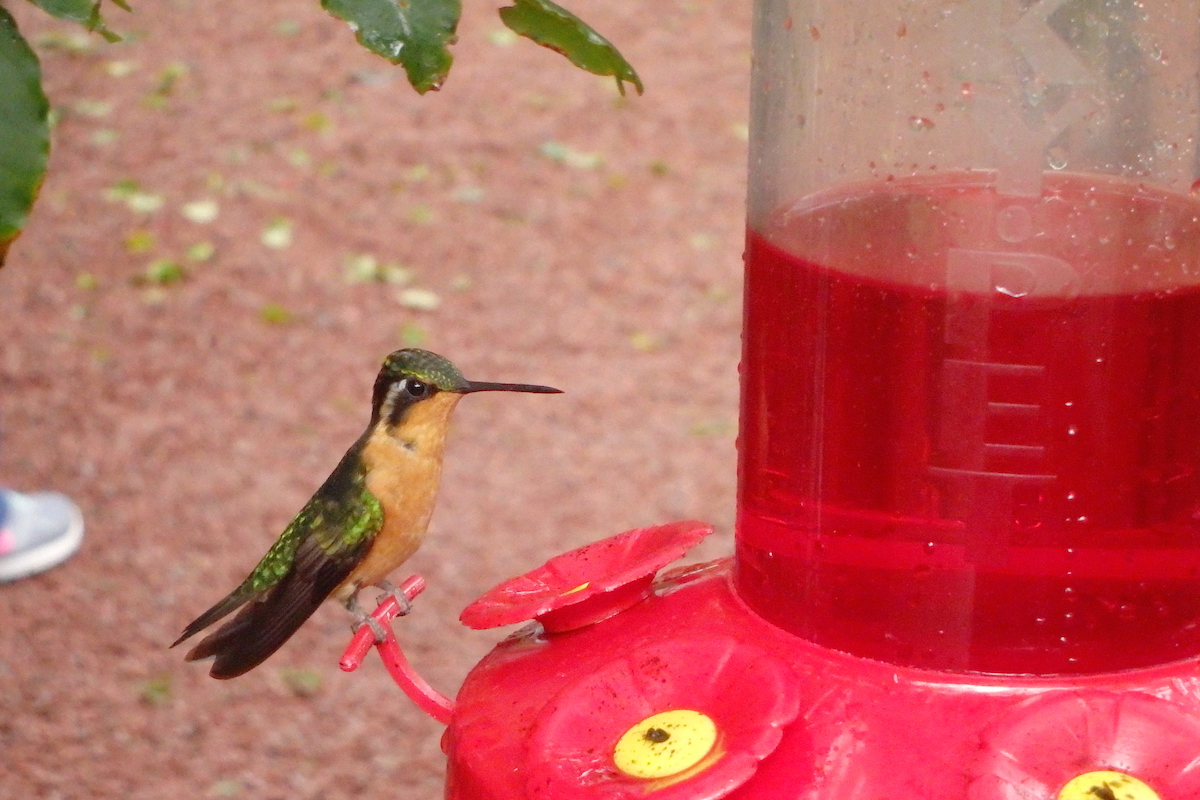
For years, gardeners and bird-lovers have been led to believe that red nectar is the best way to attract hummingbirds, because they associate the bright red hue with flowers.
The sugary, cherry-red juice is placed in hummingbird feeders, and the delicate avians flock to the feast.
However, it's becoming apparent that the red coloring in a lot of nectars is very bad news for these lovely little creatures.
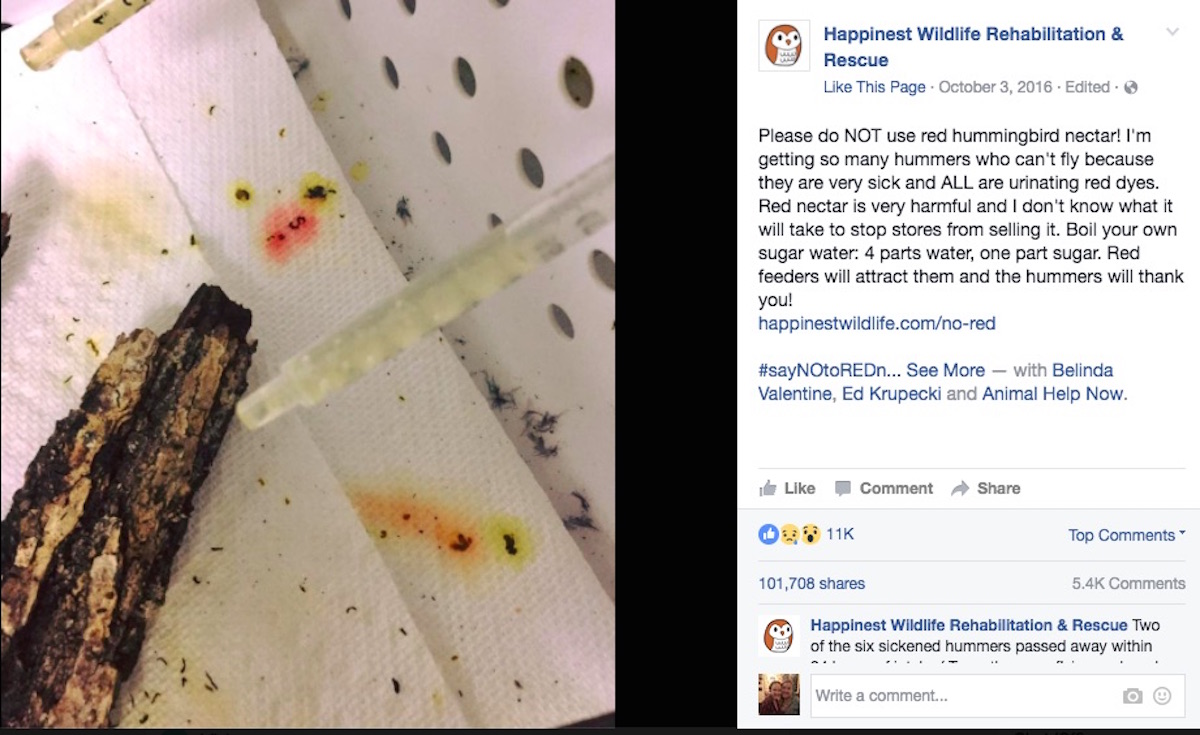
Happinest Wildlife Rehabilitation & Rescue is a wild animal welfare organization in Signal Mountain, Tennessee.
The folks who run the organization have been seeing more and more hummingbirds with strange symptoms, and took to Facebook and to their own website to explain the cause.
The post took off in a big way, with more than 100,000 people sharing the rehab's dire warning about what can happen to hummingbirds who eat too much red nectar.
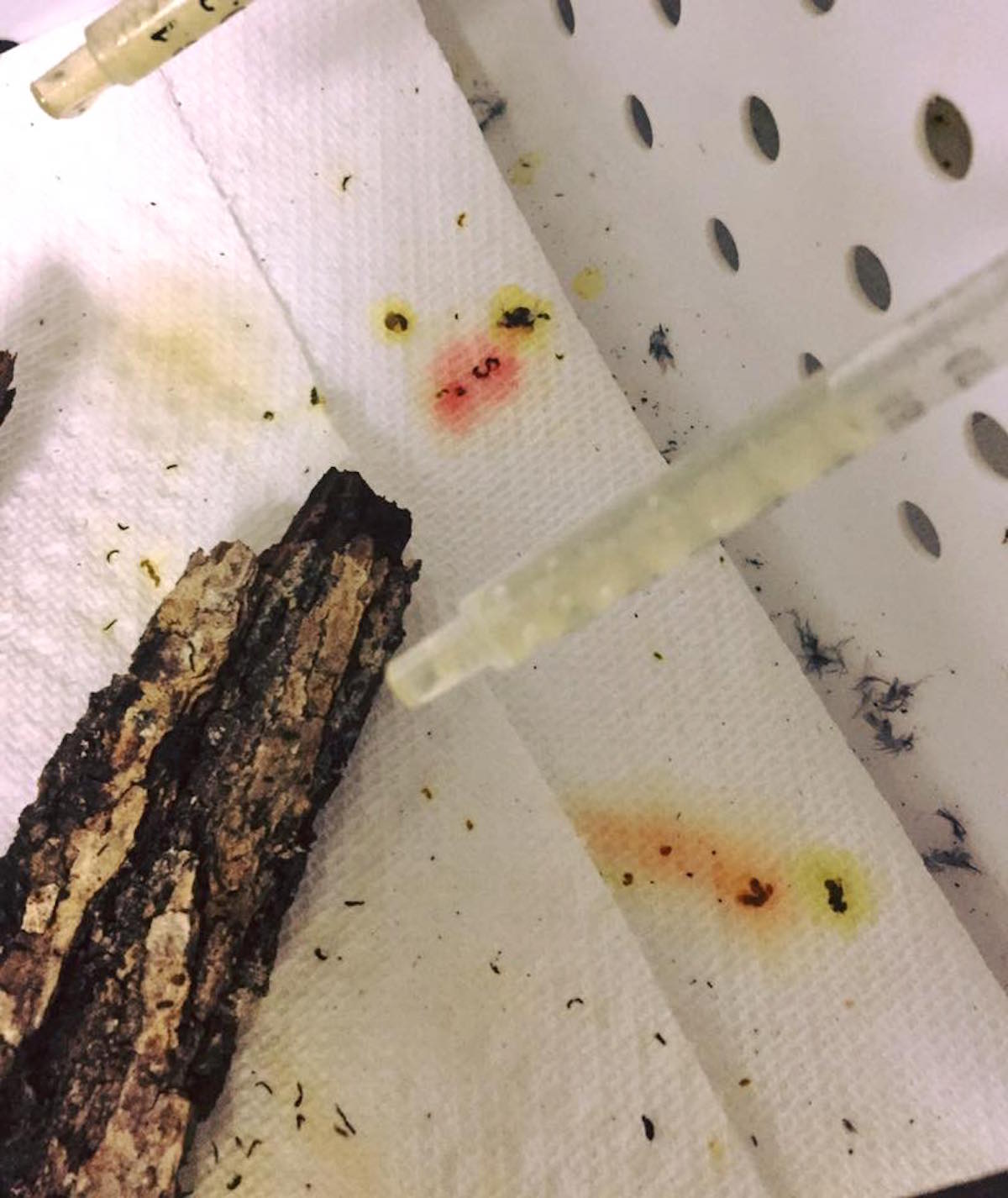
The photo Happinest posted was taken in the rehab, and shows a number of hummingbird droppings.
All are surround by halos of orange-pink stain from the red nectar they took in.
In the caption, they write:
Please do NOT use red hummingbird nectar!
I'm getting so many hummers who can't fly because they are very sick and ALL are urinating red dyes.
Red nectar is very harmful and I don't know what it will take to stop stores from selling it.
Boil your own sugar water: 4 parts water, one part sugar.
Red feeders will attract them and the hummers will thank you!
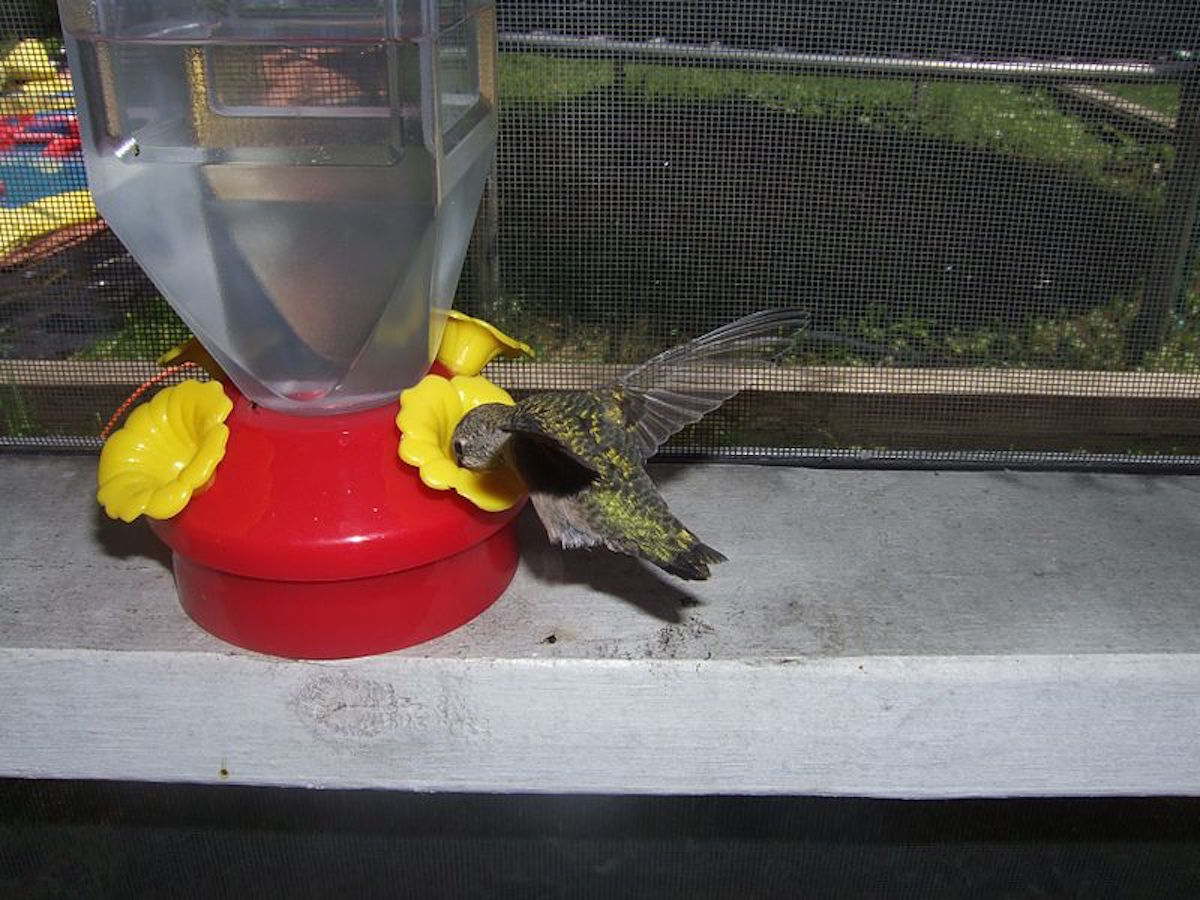
It's not clear exactly what the red dye is doing to the birds, but it's definitely impacting their ability to fly, which is vital to a hummingbird's survival.
On the Happinest website, they go into more detail, citing the Cornell Lab of Ornithology, which in turn notes, "The bottom line is that ‘instant nectar’ products containing artificial coloring are at best a waste of your hard-earned money and at worst a source of disease, suffering, and premature death in hummingbirds.”
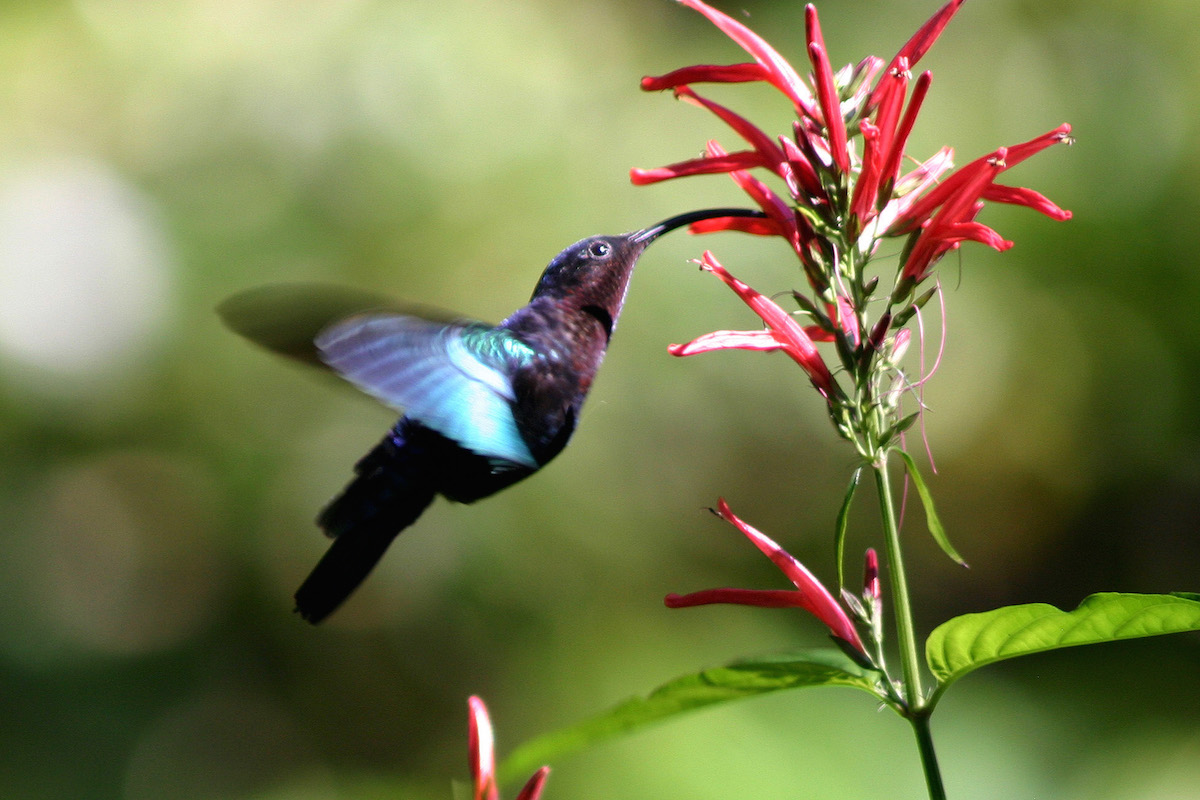
The red nectar might be particularly dangerous for hummingbird eggs and fledglings, because the eggshell might be compromised by the chemicals, and the fledglings are too small to cope with the dyes.
What's more, red nectar is actually much, much more expensive then ordinary sugar water or simple syrup.
Feeding birds clear sugar water, which is very similar to plant nectar, will keep them much happier and healthier!
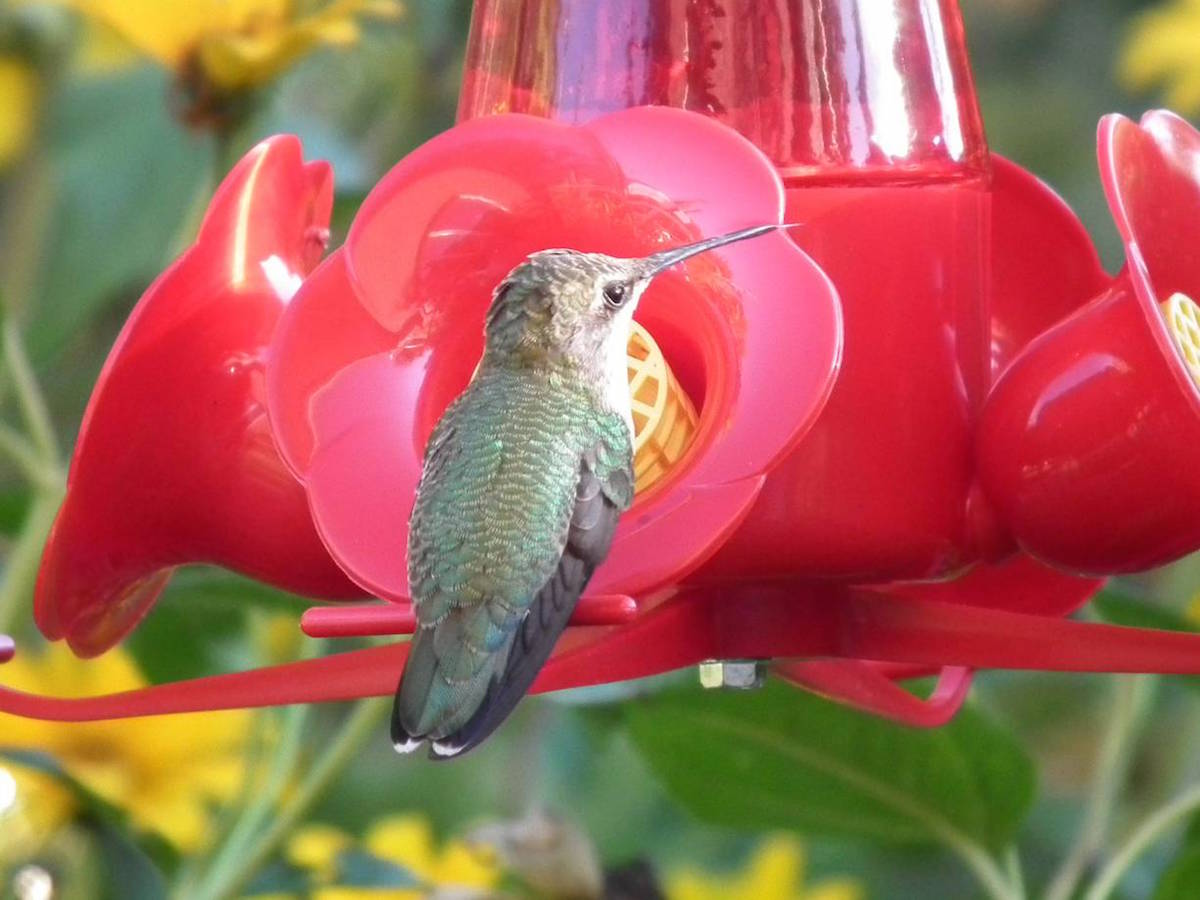
You can still use bright reds to attract hummingbirds; just buy a hummingbird feeder with bright red flower shapes on the sides, and fill it up with the clear nectar.
You can buy clear hummingbird-safe nectar in most home and garden stores, or learn to make your own on the Happinest website, which is easy and cost-effective!
If you want to spread the word and help keep hummingbirds safe, be sure to SHARE this important information for all bird lovers and gardeners!




